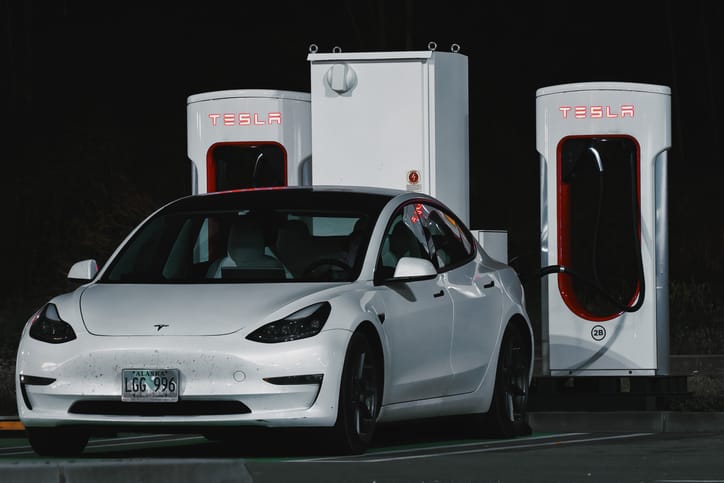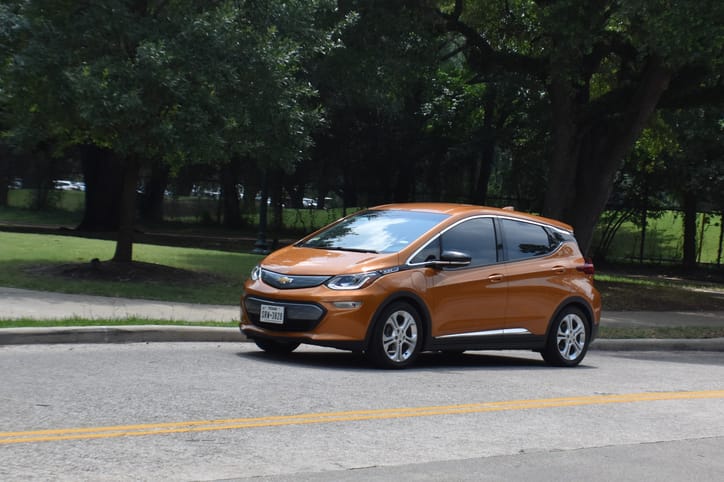Electric Choices: Tesla Model 3 vs. Chevrolet Bolt EV

The electric vehicle (EV) market is rapidly evolving, offering drivers a compelling alternative to gasoline-powered cars. Two popular choices are the Tesla Model 3 and the Chevrolet Bolt EV. While both offer zero-emission transportation, they cater to different needs and budgets. This comprehensive comparison dives into the key factors to consider when choosing between the Tesla Model 3 and the Chevrolet Bolt EV.
Range and Charging:
- Range: The Tesla Model 3 boasts a superior range, with various configurations reaching between 272 and 490 miles on a single charge. The Chevrolet Bolt EV offers a respectable range of 259 miles. For those prioritizing long-distance travel, the Tesla provides greater peace of mind.
- Charging Times: Both vehicles support DC fast charging, allowing for quick top-ups on the go. However, Tesla's Supercharger network is a significant advantage. These high-powered stations can replenish up to 200 miles of range in 15 minutes, significantly faster than most public DC fast chargers. The Bolt EV relies on a wider network of CCS/SAE Combo chargers, but charging speeds are generally slower.
- Home Charging: Both EVs can be conveniently charged overnight using a Level 2 home charger. Charging times will vary depending on the charger's power output and the vehicle's battery capacity. Tesla offers its own Wall Connector, while the Bolt EV is compatible with various Level 2 chargers.
Performance:
- Acceleration: The Tesla Model 3 is the clear winner in terms of acceleration. Performance variants can sprint from 0 to 60 mph in as little as 3.1 seconds, offering a thrilling driving experience. The Chevrolet Bolt EV prioritizes practicality over outright speed, accelerating from 0 to 60 mph in a respectable 6.5 seconds.
- Handling: The Tesla Model 3 delivers a more engaging driving experience with precise steering and a sporty feel. The Bolt EV offers a comfortable and composed ride, well-suited for everyday commuting.
Technology and Interior:
- Tech Features: The Tesla Model 3 takes a minimalist approach, with most functions controlled through a large central touchscreen. This can be polarizing, as it eliminates physical buttons for commonly used features. The Bolt EV features a more traditional layout with a mix of physical controls and a touchscreen infotainment system.
- Interior Design: The Tesla Model 3 boasts a premium, modern interior with high-quality materials. However, the minimalist design may feel sterile to some. The Bolt EV offers a comfortable and functional interior with a more conventional layout.
Government Incentives:
The U.S. federal government offers tax credits for purchasing new electric vehicles. The amount varies depending on the vehicle's battery capacity and manufacturer. As of March 2024, both the Tesla Model 3 and Chevrolet Bolt EV may still qualify for a federal tax credit, but the exact amount can change. It's crucial to research current incentives before making a purchase decision. Additionally, some states and localities may offer further tax breaks or rebates for EVs.

Cost and Value:
- Starting Price: The Chevrolet Bolt EV boasts a significantly lower starting price than the Tesla Model 3. The Bolt EV starts around $31,000, while the Model 3 starts at roughly $40,000.
- Total Cost of Ownership: While the Bolt EV has a lower upfront cost, Tesla vehicles are renowned for their superior long-term value. Tesla cars typically require less maintenance compared to gasoline-powered vehicles, and electricity costs are generally lower than gasoline prices. Additionally, Tesla's Supercharger network can significantly reduce dependence on public charging infrastructure, potentially saving money on charging costs over time.
The Verdict:
The choice between the Tesla Model 3 and the Chevrolet Bolt EV ultimately depends on your priorities and budget.
Choose the Tesla Model 3 if:
- You prioritize long range and access to Tesla's high-speed Supercharger network.
- You desire a sporty driving experience and a technologically advanced interior.
- You plan to keep the car for a long time and value long-term ownership costs.
Choose the Chevrolet Bolt EV if:
- You have a tighter budget and prioritize affordability.
- You prefer a more traditional interior layout with physical buttons.
- Your daily commute falls within the Bolt EV's range, and access to public DC fast chargers is sufficient.
Whichever you choose, both the Tesla Model 3 and the Chevrolet Bolt EV represent compelling options in the ever-expanding world of electric vehicles. Take advantage of test drives to experience each car firsthand and determine which best suits your needs and driving style.
